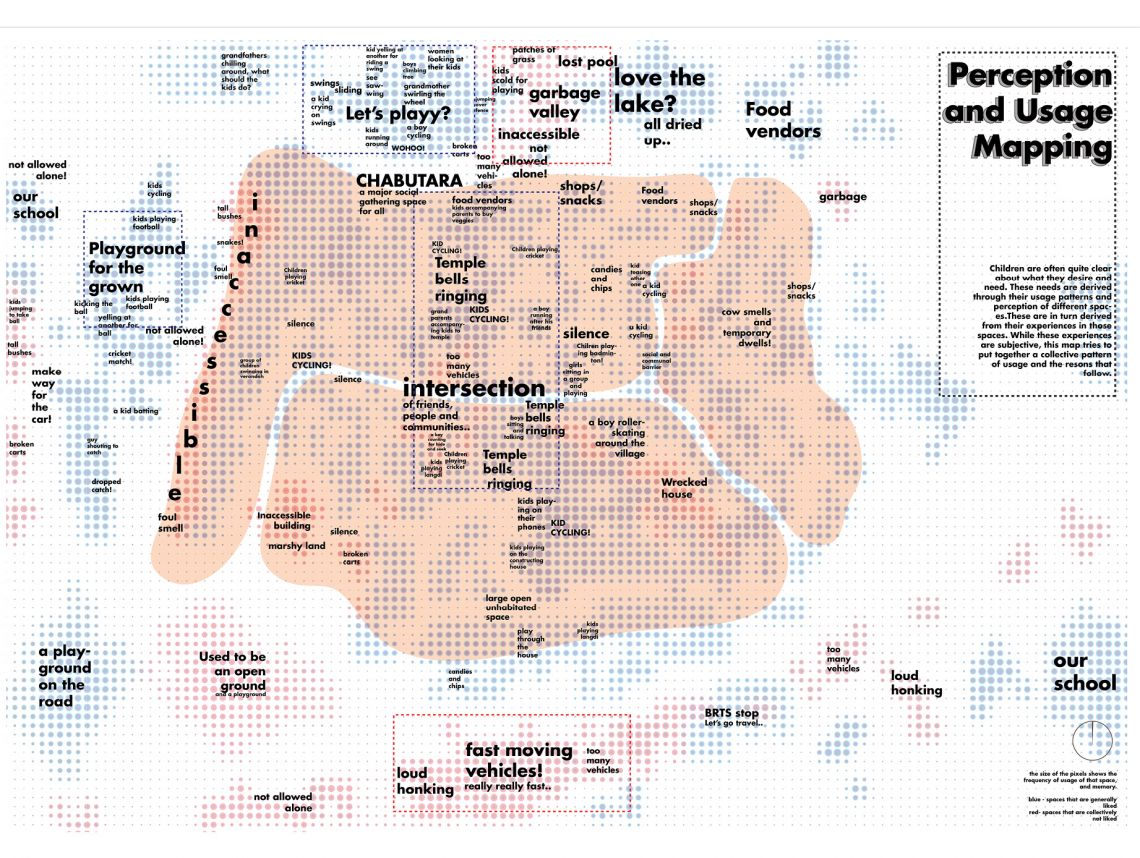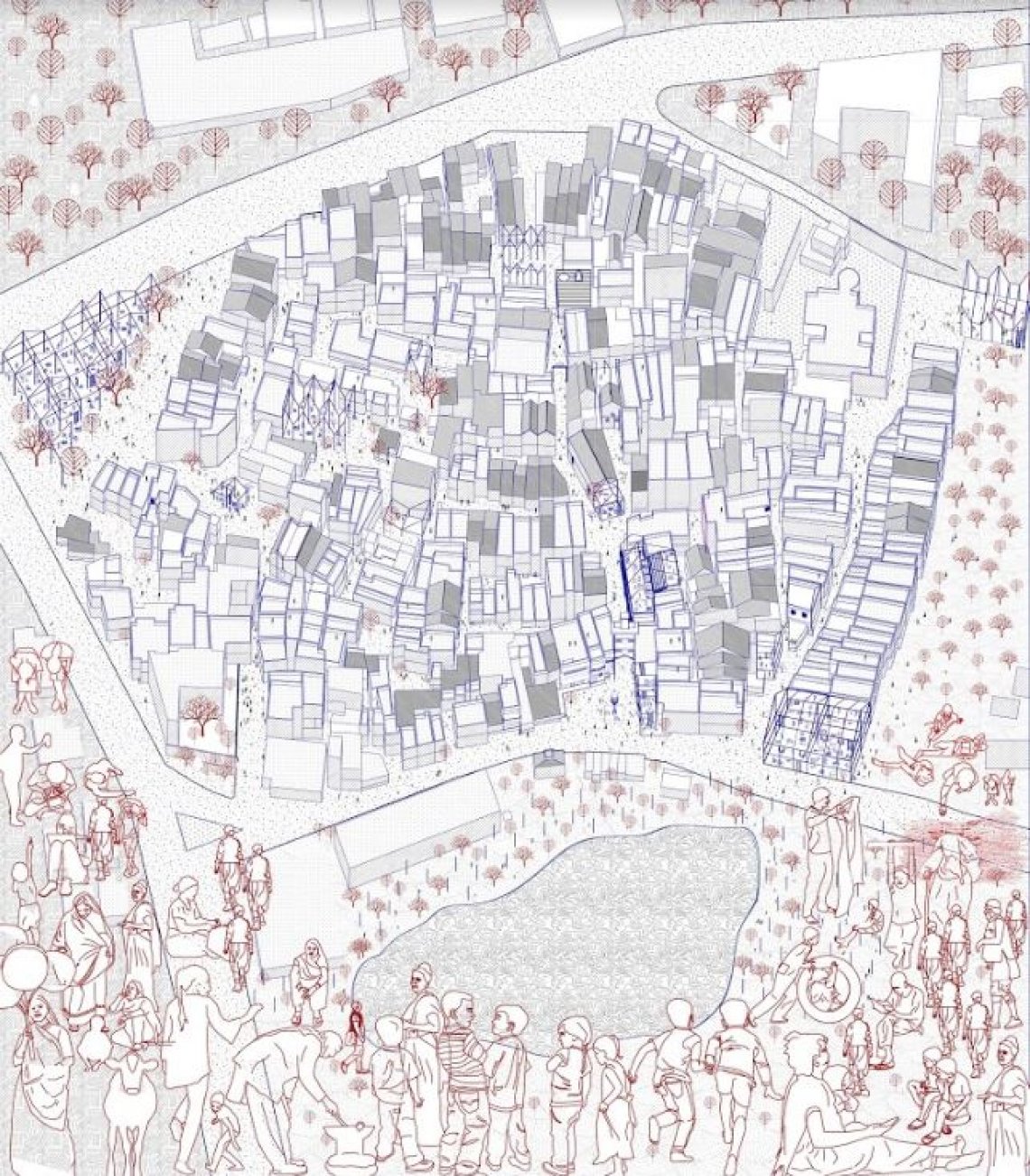Your browser is out-of-date!
For a richer surfing experience on our website, please update your browser. Update my browser now!
For a richer surfing experience on our website, please update your browser. Update my browser now!
unbound
ambli:
Urban villages in Indian cities undergo a transition as the city rapidly grows around them. The fast-
paced transformations that follow would result in disassociation between long-time residents
and village, who increasingly relocate to adjacent urban neighborhoods. As they leave, the care
for village structures and spaces decreases and physical fabric suffers from decay and lack of
maintenance. Ambli is one of such villages, located on the western periphery of Ahmedabad, it
faces the threat of potential loss of identity. How do we then revive the collective identity without
altering the associations?
The design evolves through a collaborative process where the designer becomes a tool for the
community. Throughout the semester, multiple interactions with the people of Ambli took place.
Different experiments and exercises became a major part of these interactions, leading up to a
catalog of their associations and the potential spaces of intervention. The concept, strategy, and the analysis were simultaneously discussed and developed with this stakeholder group at
different points of time.
The design aims at increasing inter-communal interaction opportunities amongst the people of
the gaam whilst enhancing their living experience, through creating a new identity which co-exists
with the collective associations, thus creating more opportunities for different user intended
activities to take place in the space. These structures create spatial non-programmatic spaces
which align to the immediate context and utilizes the idea of play to revive the spaces and
connections.




